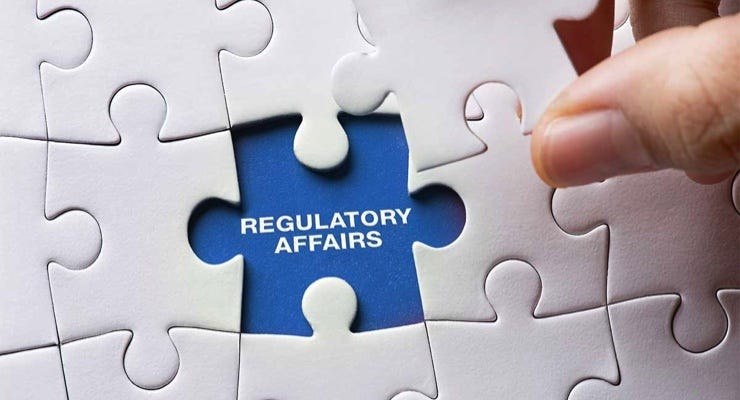Sustainable Practices in Regulatory Affairs
Sustainable Practices in Regulatory Affairs
Blog Article

In today's fast-paced world, the importance of sustainable practices in various sectors cannot be overstated, and regulatory affairs is no exception. As industries evolve and the emphasis on environmental responsibility grows, professionals in regulatory affairs play a crucial role in ensuring that organizations meet compliance standards while also embracing sustainability. This intersection of regulation and sustainability has opened a new dialogue about the responsibilities that regulatory affairs practitioners have in guiding their organizations toward environmentally conscious practices.
Regulatory affairs professionals are increasingly tasked with navigating complex frameworks that not only address compliance but also promote ethical and sustainable practices. This shift is vital for fostering innovation and ensuring that new products and processes are developed with sustainability in mind. By integrating sustainable practices into regulatory strategies, companies can not only minimize their environmental impact but also enhance their reputation, appeal to a growing base of eco-conscious consumers, and stay ahead in a competitive marketplace.
Importance of Sustainability in Regulatory Affairs
Sustainability in regulatory affairs plays a critical role in ensuring that organizations not only comply with existing regulations but also contribute positively to environmental and social well-being. As regulatory bodies increasingly prioritize sustainability, professionals in this field must understand and navigate these evolving requirements. This shift represents a growing recognition that business operations impact ecosystems and communities, necessitating a proactive approach to compliance that goes beyond mere legal adherence.
Regulatory Affairs Course
Integrating sustainability into regulatory affairs enhances an organization's reputation and stakeholder trust. By demonstrating a commitment to sustainable practices, companies foster goodwill among consumers, investors, and regulators alike. This can lead to competitive advantages, as stakeholders are more likely to support and engage with organizations that prioritize environmental stewardship and social responsibility. Regulatory affairs professionals are essential in communicating these values and ensuring that sustainability efforts are accurately represented in compliance documentation and reporting.
Furthermore, sustainable regulatory practices can drive innovation within companies. When regulatory affairs teams embrace sustainability, they encourage the exploration of new technologies and processes that align with environmental goals. This not only helps in meeting regulatory requirements but also positions organizations to lead in their industries. By promoting a culture of sustainability in regulatory affairs, businesses can achieve operational efficiency, reduce risks, and ultimately create more resilient and prosperous futures.
Strategies for Implementing Sustainable Practices
One effective strategy for implementing sustainable practices in regulatory affairs is to establish clear communication channels among stakeholders. By fostering open dialogue between regulatory bodies, industry representatives, and environmental experts, organizations can ensure that sustainability considerations are integrated into the regulatory framework from the outset. This collaboration allows for sharing best practices and insights, ultimately leading to more informed decision-making that balances compliance with sustainability goals.
Another approach is to leverage technology and data analytics to enhance regulatory processes. By utilizing advanced tools, organizations can streamline compliance efforts, monitor environmental impacts, and analyze the sustainability of products and services. This proactive use of technology not only aids in regulatory compliance but also enables companies to identify areas for improvement, drive innovation, and align their operations with sustainable practices.
Lastly, continuous training and education for regulatory professionals are crucial for embedding sustainability into regulatory affairs. Providing staff with the knowledge and skills needed to understand and promote sustainable practices equips them to navigate the complexities of regulations effectively. Investing in professional development ensures that regulatory affairs teams are well-versed in the latest sustainable practices, enabling them to play a pivotal role in advocating for environmentally responsible policies and initiatives within their organizations.
Challenges and Future Directions
Regulatory affairs faces numerous challenges as the industry evolves. One significant hurdle is the constant change in regulations across different regions, which complicates compliance and contributes to increased costs for companies. Frequently updated guidelines require professionals to stay informed and adapt their strategies accordingly. Additionally, the growing complexity of medical products and technologies increases the burden on regulatory bodies that must ensure safety and efficacy while fostering innovation.
Another challenge is the integration of sustainability practices into regulatory frameworks. As the demand for environmentally friendly solutions rises, regulatory affairs must navigate how to incorporate sustainability into traditional compliance protocols. This integration may require new methodologies and criteria for assessing a product's environmental impact, necessitating collaboration between regulators and industry stakeholders to develop cohesive guidelines that ensure environmental considerations are part of the regulatory review process.
Looking to the future, regulatory affairs must embrace digital transformation. The implementation of advanced technologies such as artificial intelligence and big data analysis can streamline processes, improve compliance tracking, and enhance data review efficiency. By leveraging these technologies, regulatory professionals can better manage the increasing volume of data and documentation required for approvals. A focus on digital solutions will be crucial for regulatory affairs to support rapid innovation while maintaining high standards of safety and efficacy in the products that reach the market.
Report this page